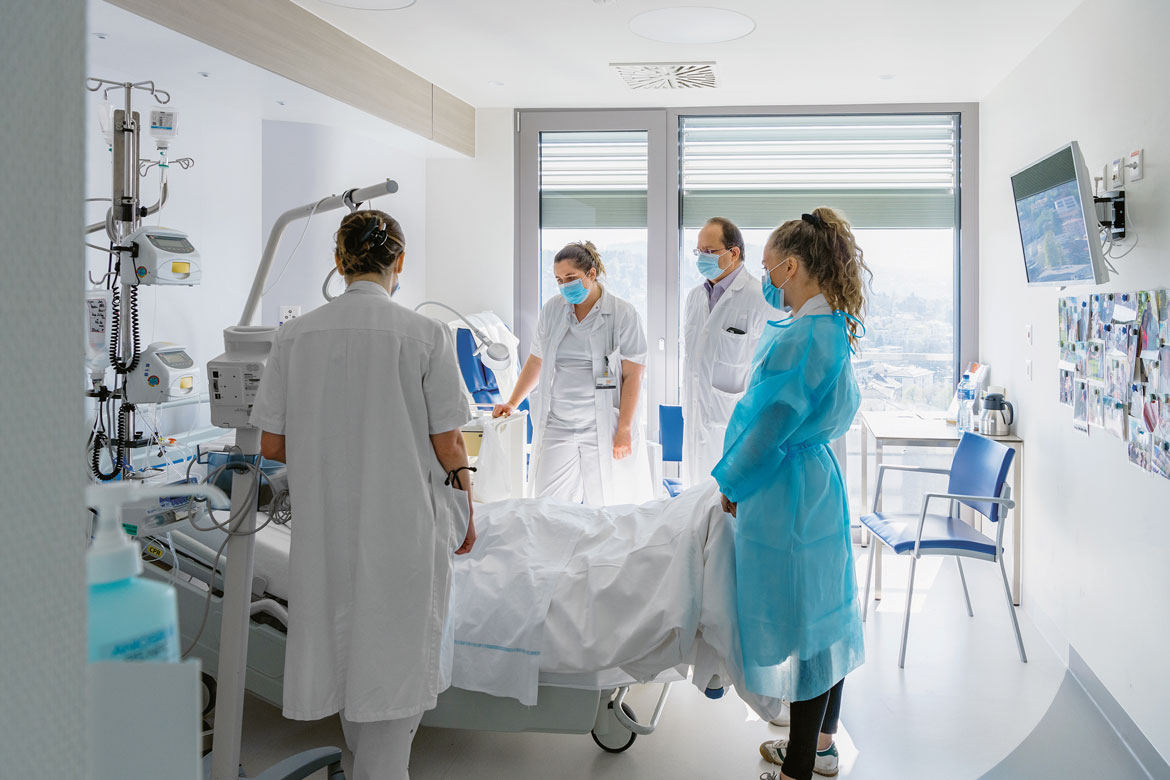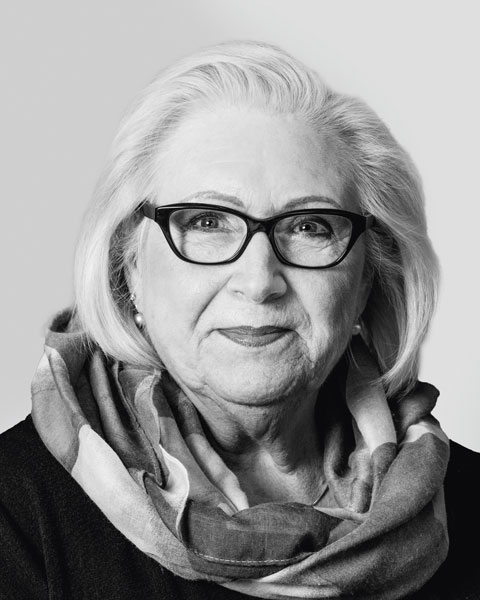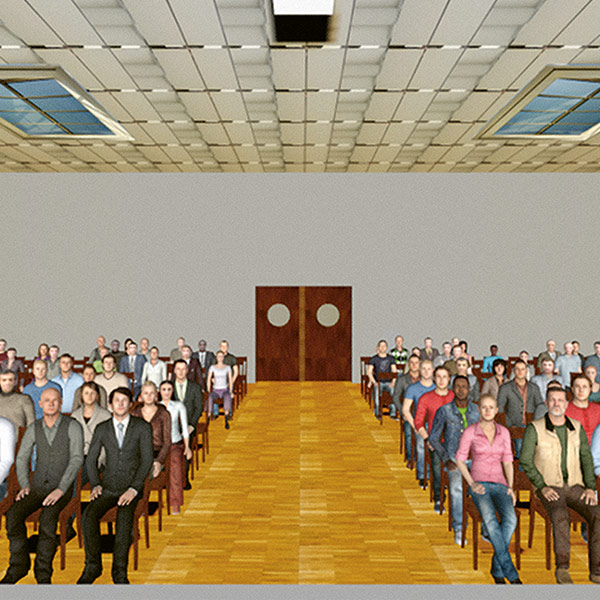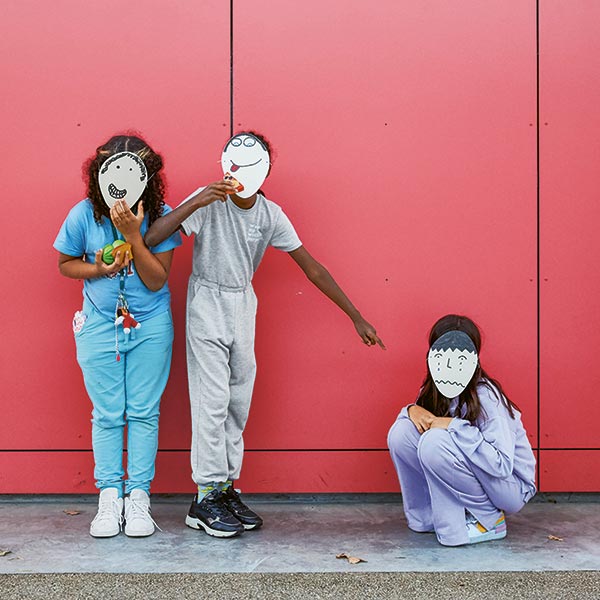CLINICAL STUDIES
The voices of those affected
Medical science could never progress without clinical trials. Too often, however, these trials ignore the needs of the patients themselves. All that is now about to change.

When surrounded by experts, it can be hard to assert your needs if they seem minor. | Photo: Heidi Diaz
In cancer research, two different worlds collide. There are the researchers who want to test whether new therapies could cure the disease or at least prolong life; then there are the patients, who naturally want to live longer, but for whom other matters are also important. Like achieving a better quality of life during their treatment and after it. Or as few hospital consultations as possible. Or just obtaining information on their illness that’s easy to understand. These concerns are often under the radar of the researchers.
“This is why it’s important to give patients a voice during clinical trials. Not because they have any scientific expertise, but because they’re the ones living with the disease”, says Sabine Rütti Roch, who’s responsible for patient participation at the Swiss Clinical Trial Organisation.
Tracking study participants each step of the way
In fact, this is already standard practice among funding organisations. For example, researchers applying to the SNSF for funding for a clinical study also have to include a plan for patient participation. The Swiss Group for Clinical Cancer Research (SAKK) has even set up its own Patient Council. Its members don’t participate in the trials themselves, but advise researchers at all stages, from planning the trial to its completion.
In French-speaking Switzerland, the ‘Laboratoire des Patients’ (‘Patient laboratory’) is promoting patient participation in cancer research. They are currently involved in a study in which people suffering from skin cancer are taking part in an experimental cell therapy. It will take several months until it’s clear whether this therapy will enjoy any long-term success. “The therapy is complex, it’s stressful, and it’s bound up with great uncertainty”, says Sara Colomer-Lahiguera, a nursing scientist who is heading a study involving patients, relatives and healthcare professionals that aims to improve care during the therapy.

- Lorenz Tanner (55)
- patient councillor
Colomer-Lahiguera’s research team tracks the study participants each step of the way on their long journey through their assessments and treatment. They also interview doctors, carers, laboratory technicians, researchers and the administrative staff involved. Colomer-Lahiguera is furthermore gathering the opinions of focus groups comprising people affected by cancer and their relatives. All this feedback will help her team to compile a list of recommendations as to how this complex therapy might be made patient-friendly. “And we want to do this as soon as possible, before it becomes a standard means of treatment”.
Patients are also acting as advisors on this study, e.g., Tourane Corbière, an environmental engineer who was diagnosed with bone marrow cancer 10 years ago. “My story can now help improve the lives of others suffering from cancer”, she says. Corbière has a varied assortment of tasks to fulfil: “For instance, I’ve read the study protocol and identified those phases that could be especially stressful. I pointed out that the accompanying study ought to investigate the need for psychological support, and when it should be offered”. She also asked whether patients should be allowed to continue taking alternative remedies during the trial. “Researchers sometimes forget these real-life issues”.
Creating a platform to find patient councillors
This is also acknowledged by Heinz Läubli, a cancer researcher currently responsible for coordinating some 30 clinical trials in Basel at the University and the University Hospital. “Medically, we do everything for our trial participants. Sometimes it can mean lying on a ward in isolation for three whole weeks. But that’s naturally a strain on those who are affected”. This is why it’s important to him to get feedback from participants after a trial is over. And today, the patients’ quality of life is almost always assessed too.

- Rosmarie Pfau (73)
- patient representative
“Of course we should do everything we can to help the patient”, says Alfred Zippelius, the Joint Chief Physician of Oncology at University Hospital Basel. He is also engaged in clinical research and invests a lot of his time in guiding his patients through information sheets, so they understand everything and don’t enter into an experimental study with the wrong ideas. But he doesn’t think it’s practicable to consult with patient councils before every clinical trial. “If it simply inflates everything and ends up hindering a clinical trial, then it really doesn’t make sense”. In his opinion, everyone ought to agree on a few basic ideas, perhaps by sitting around a table together.
This is exactly what’s currently in planning. “At present there are more than 60 different initiatives ongoing in Switzerland, in different places and at different levels”, says Rütti Roch. “Now we’re aiming to bring them closer together”. This also means developing a platform where researchers can find patient councillors for their studies – there simply aren’t enough of them yet. This is why interested parties are now being trained as patient experts at so-called EUPATI (European Patients’ Academy of Therapeutic Innovation) courses in Switzerland. These courses, for example, teach one how clinical research works, and what scientific standards must be upheld by researchers.
“Things are slowly picking up, even if we’re not yet as far along as the UK, for instance”, says Rütti Roch. “If our trials become more patient-friendly, it might also become easier to recruit enough trial participants in future, and keep them on board too”. This is the only way that cancer research will be able to make real progress.




